 |
 |
TURNERA DIFFUSA - DAMIANA.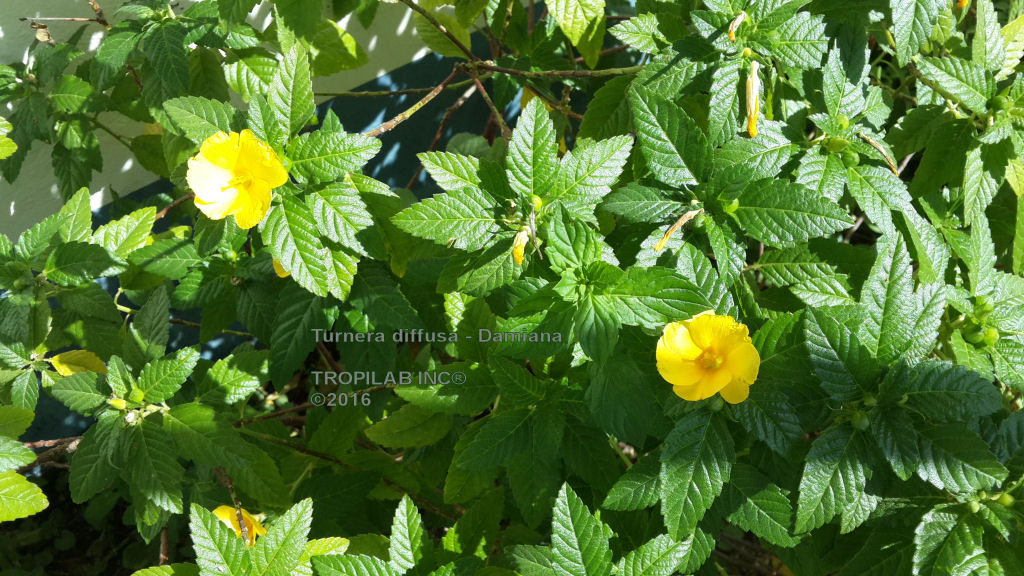 Synonym
SynonymTurnera aphrodisiaca. Common name Damiana, Mexican damiana, Mexican holly, Mizibcoc, old woman's broom, hierba del venado, oreganello. Family Turneraceae (Turnera family) . Overview Damiana, original from Central America, is a small perennial shrub; growing up to 3 – 6 feet (1 - 2 meters) tall. The leaves are serrate and aromatic; smooth on the top side, glabrous with a few hairs on ribs underneath. The stems are erect with the small yellow flowers rising from the leaf axils which produce small sweet smelling fruits. The seed capsule is one-celled splitting into three pieces, exposing 3 to 6 kidney-shaped seeds. Leaves from this plant are used as a tea substitute and as a flavoring in liqueurs. Damiana is on the FDA list for GRAS (Generally Recognized As Safe) and is also often used as food flavoring. It is claimed that smoking this herb induce a marijuana-like legal "high" and euphoria. When smoked, the effects last up to 90 minutes; taken as a tea, the effects are milder, but last longer. Constituents Leaves contain up to 1% volatile oil consisting of 1,8-cineole, p-cymene, alpha- and beta-pinene, thymol, alpha-copaene, and calamene. Dry matter of the leaf includes a bitter substance (damianin), tannins, flavonoids, beta-sitosterol, and glycosides (gonzalitosin, arbutin, and tetraphyllin B). 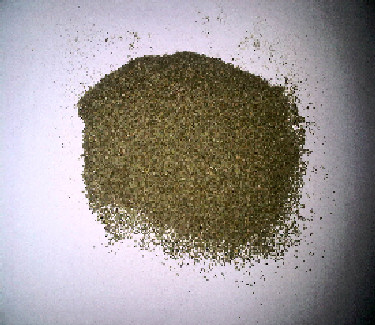 Suriname's Traditional Medicine
Suriname's Traditional MedicineDamiana is used for sexual debility (increases libido). Other applications are: as an antidepressant, nerve tonic, diuretic, prostate complaints, frigidity and cough-suppressant. In Mexico, Damiana is also used for gastrointestinal disorders (probably due to antibacterial activity against Gram-positive and Gram-negative bacteria). Visit also our TINCTURE and Medicinal Tea pages. Hardiness USDA zone 9 -11. In spring and summer, up to zone 6 as an annual. Propagation Seeds. Culture Full sun; moist, rich humus soil. Tolerant of many soil types; no salt tolerance. The plant is drought tolerant and attracts bees and butterflies. Can also be grown indoors as a container plant in the cooler zones. The plant is sensitive to frost; foliage hardy to 30 ° F for a short time. Except to their tenderness to frost, they grow without major impediment. Landscape uses: as a shrub, if pruned. |
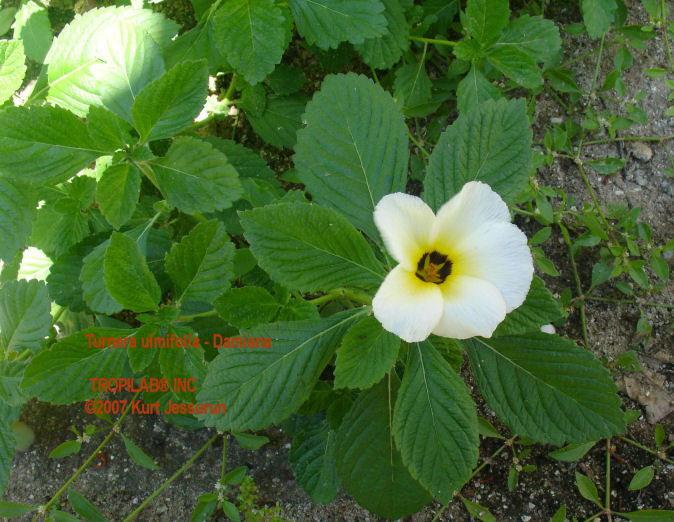
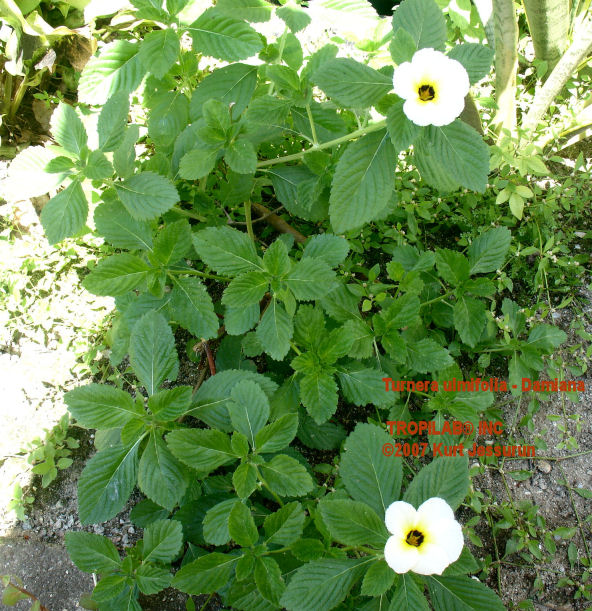
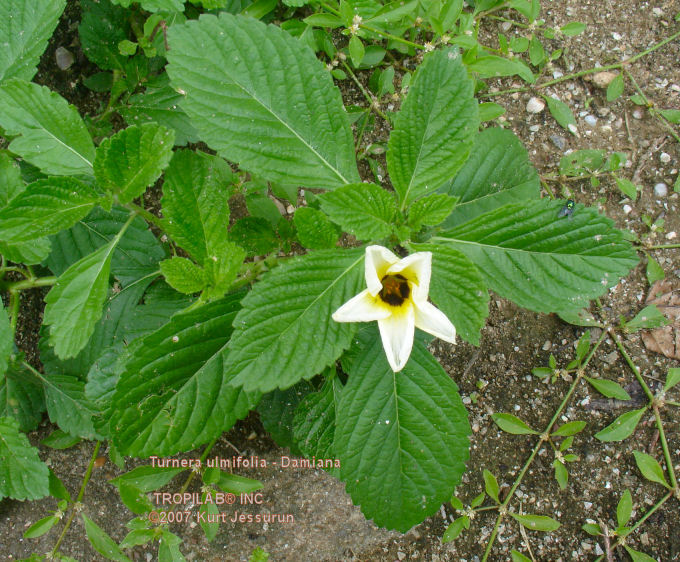

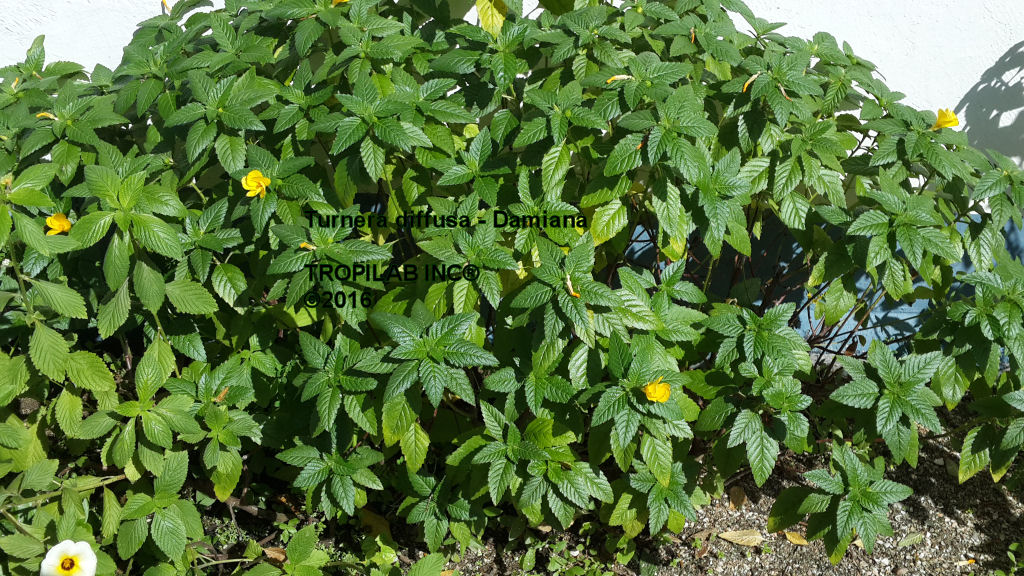
| ||||
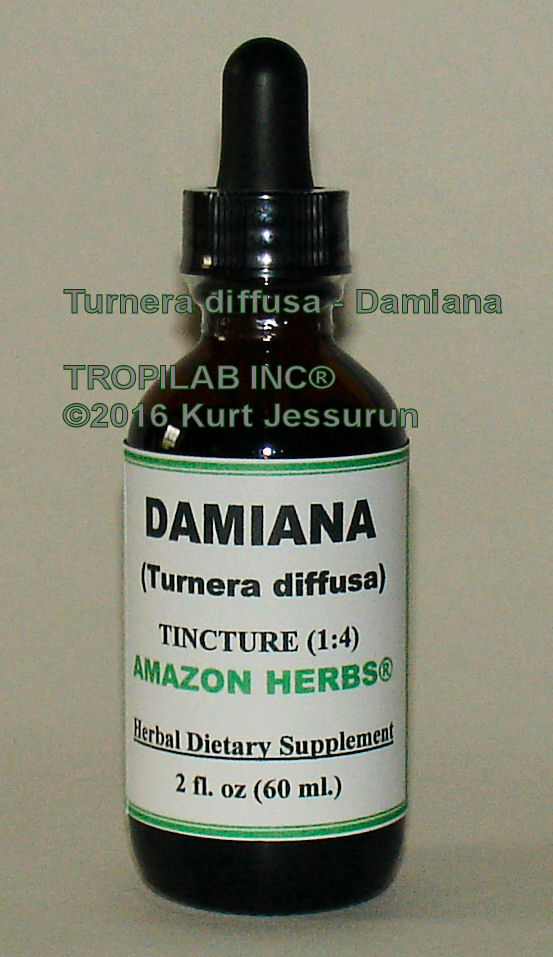
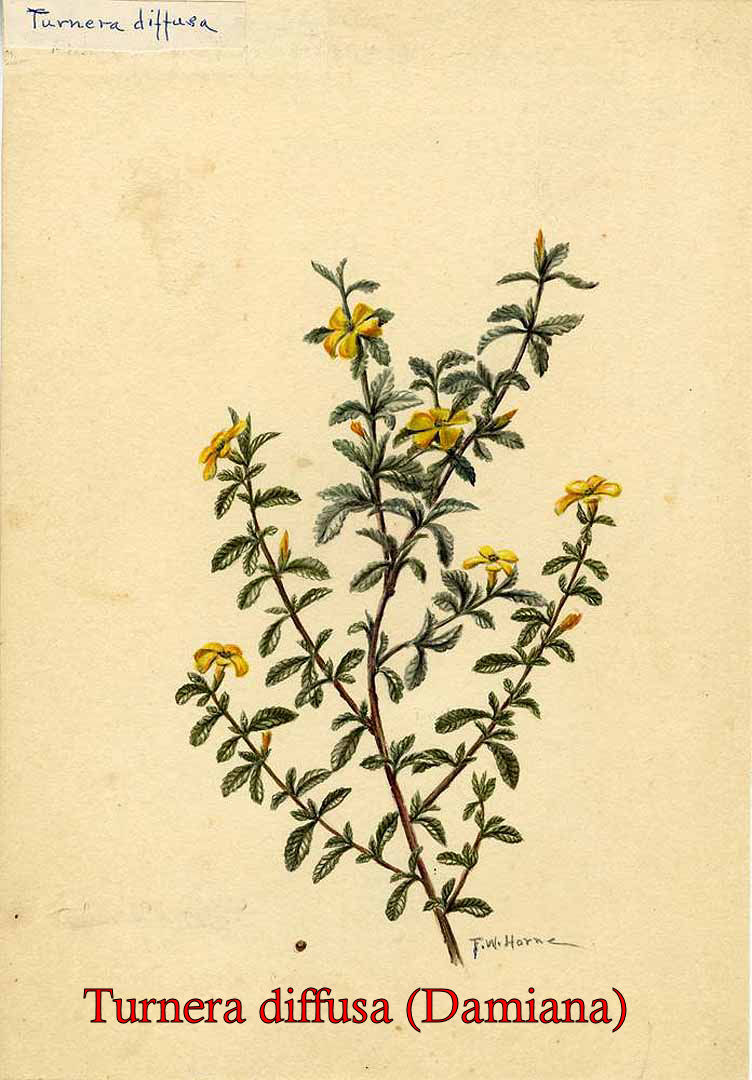
|
|
For the right freight rate, shipping charges, conditions and delivery service, please visit our Webstore page! |